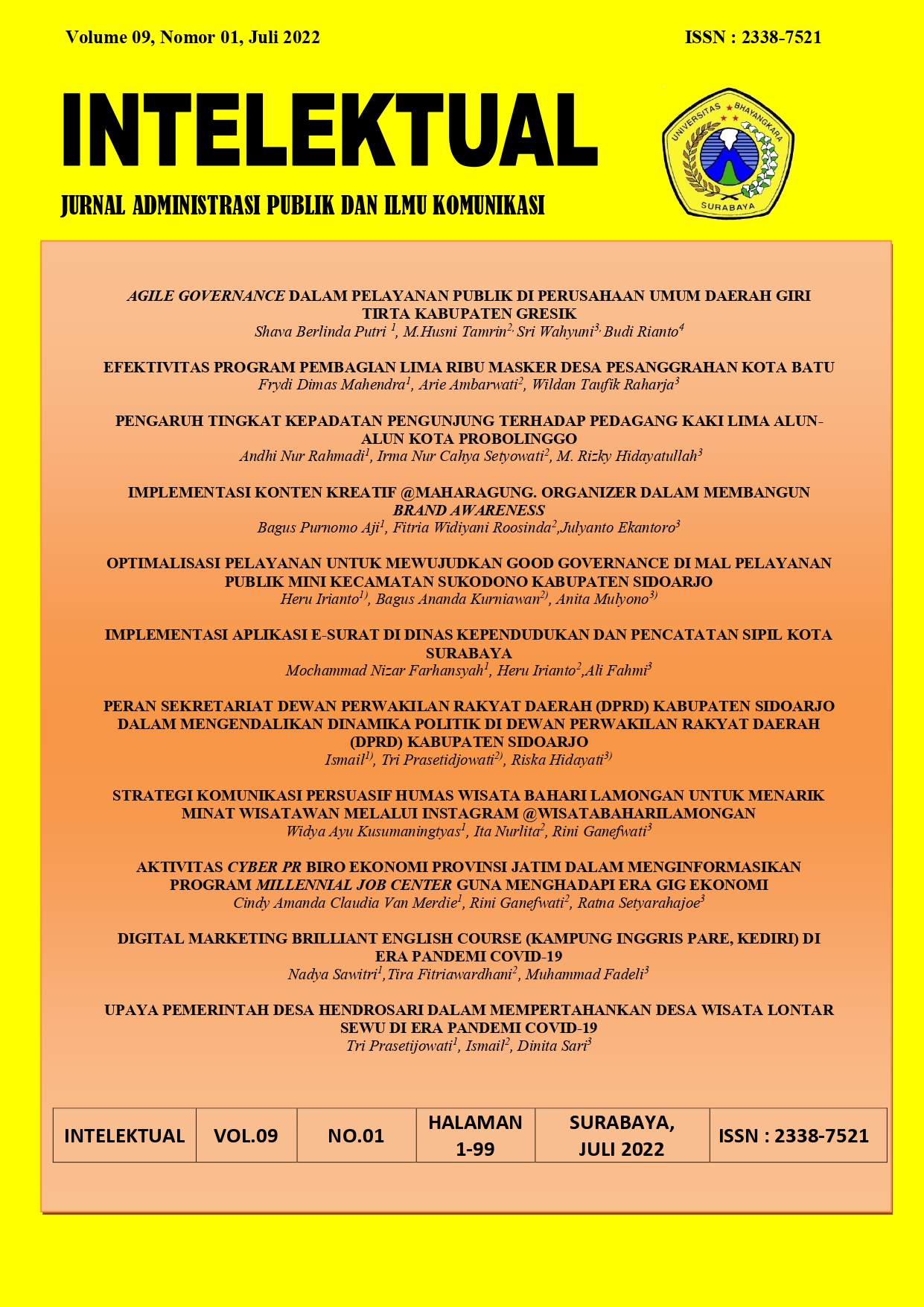AKTIVITAS CYBER PR BIRO EKONOMI PROVINSI JATIM DALAM MENGINFORMASIKAN PROGRAM MILLENNIAL JOB CENTER GUNA MENGHADAPI ERA GIG EKONOMI
Isi Artikel Utama
Abstrak
The development of the 4.0 era has resulted in technology having an important role in the economic aspect by giving rise to the Gig Economy phenomenon involving freelancers. The manifestation of the presence of the East Java Provincial Government in welcoming the Gig Economy is by launching the Millennial Job Center (MJC) program to support young people or millennials in competing in the digital world. This research was conducted with the aim of knowing Cyber PR activities carried out by the East Java Provincial Government in an effort to inform the MJC program. In implementing Cyber PR practice it is important to pay attention to basic concepts, such as Transparency, Internet Porosity, Internet as an Agent, Richness in Content, and Reach.
This study used a qualitative descriptive method and data collection was carried out by interview and observation techniques at the Economic Bureau of East Java Province. The subjects in this study were Experts and Head of Sub-Division of Financing, Regional-Owned Enterprises Partnerships, and Regional Investments.
The results of this study indicate that the Government has paid attention to five important elements in the practice of Cyber PR, namely trying to be open or transparent in providing information related to MJC, but still maintaining internal information or data so that it does not leak to external audiences by carrying out regular monitoring on uploaded information or content. In addition, the form of wealth of information provided also follows the development or millennial communication style, and still contains a clear and straightforward information structure. In the practice of using social media, it also utilizes advertising features or Ads to cover the wider community.
Rincian Artikel
Authors who publish with Intelektual: Jurnal Administrasi Publik dan Ilmu Komunikasi agree to the following terms:
- The author retains copyright licensed under Creative Commons Attribution-NonCommercial 4.0 (CC BY-NC 4.0), which allows others to remix, adapt, and expand on the author's work non-commercially, and even if someone else's new work must also acknowledge the author and is non-commercial, they do not need to license their derivative works on the same terms.
- Authors are permitted and encouraged to post their work online (e.g., in institutional repositories or on their websites) before and during the submission process, as this can lead to productive exchange, as well as earlier and greater citation of the published work ( See Impact of Open Access). Authors can archive preprints and postprints or publisher/PDF versions.

